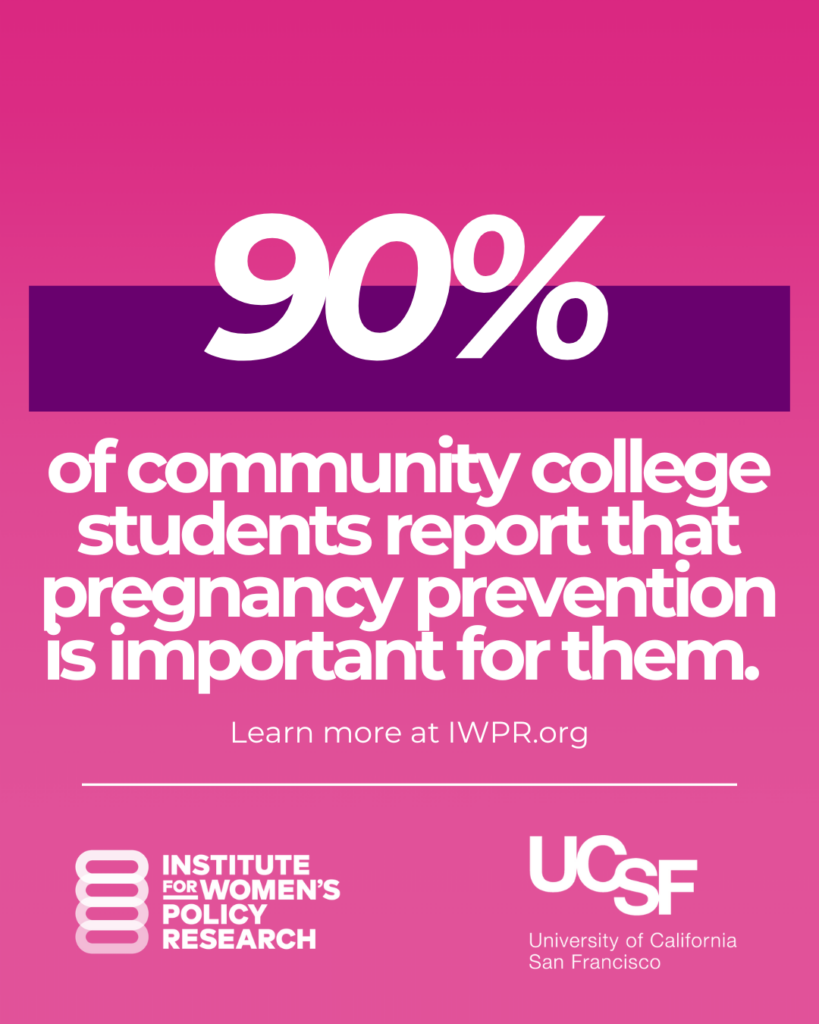Over 9 million young people seek higher education through community colleges each year, but their reproductive health needs are often overlooked. In the wake of SCOTUS overturning the constitutional right to abortion, contraceptive access has been even further undermined.
A new policy brief, presented by the Institute for Women’s Policy Research (IWPR) and the Beyond the Pill program at UCSF Bixby Center for Global Reproductive Health, outlines how college leaders, advocates, and policymakers can expand supports in order to bridge the gap between students’ immediate needs and ultimate goals.
The brief builds on Beyond the Pill’s groundbreaking REACH Youth Study findings that 90% of community college students surveyed said pregnancy prevention is important and that contraception could help them during their education. However, many community college students face barriers to contraception, including privacy concerns, lack of awareness, and affordability. One-third of students delayed contraceptive care they thought they needed, with mental health challenges being a key factor.
While policies in states like California help reduce barriers to contraception, gaps remain, worsened by the reversal of Roe v. Wade. Read the brief to learn more about key policy actions that can support broader contraceptive access and reproductive freedom.
